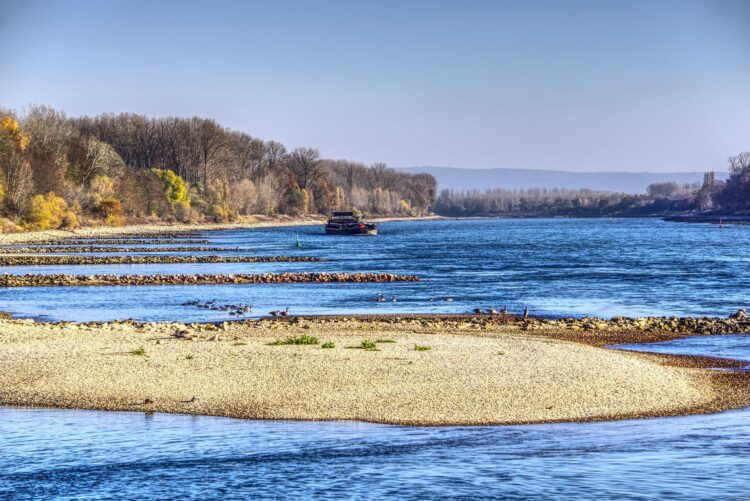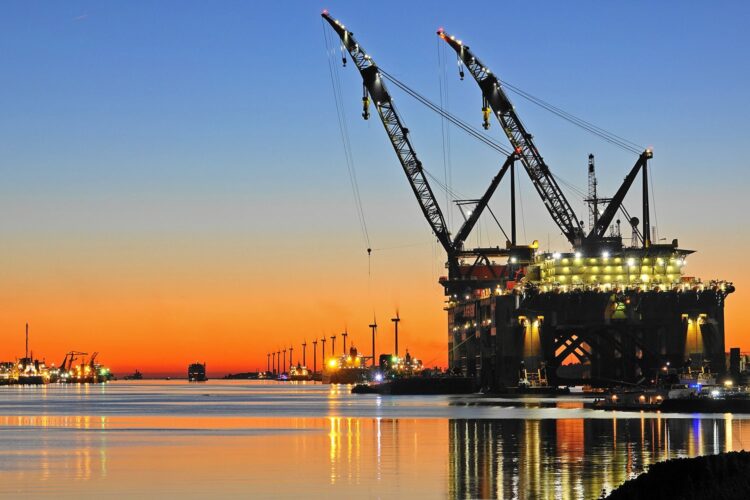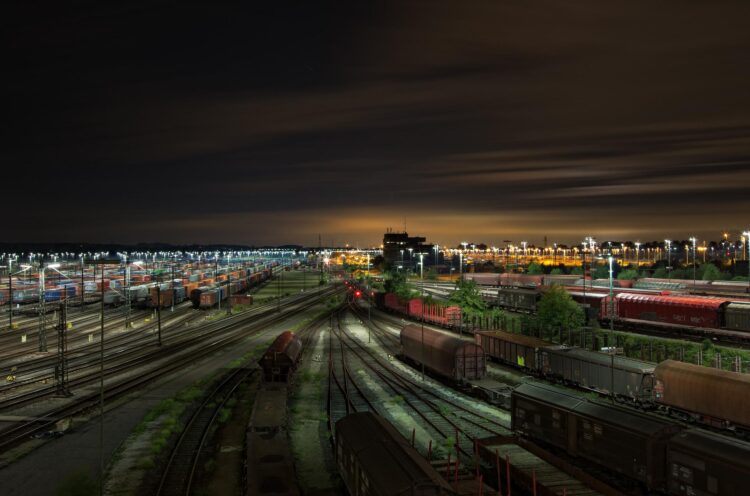Rhine-Alpine News
01.08.2022
Low water, less ships on the Rhine

Source: Image by Markus Distelrath from Pixabay
Drought and a lack of ships are weakening Europe’s most important waterway. And this of all times, when the river is of central importance in the economic war with Russia. Traffic is already being restricted on many waterways and ships can be loaded less heavily. Traffic could soon come to a complete standstill in large parts, as was the case in 2018. This would have devastating consequences, especially on the Rhine. With its 160 million tons of transported goods per year, the river is by far the most important waterway on the continent; the Danube, despite its much longer course, only manages a quarter of this amount. Large parts of the chemical industry and the energy sector are supplied with coal, oil and chemical raw materials via the river. Low water on the Rhine is therefore a problem even in normal years. This year, however, the drought hit the country in a particularly piquant situation: in order to prepare for a possible gas shortage in winter, the coal-fired power plants should produce as much output as possible. But for that you need hard coal from the Rhine. Altough it has been known for years how the Rhine could be made fit for low water levels, this will not be implemented until 2030 at the earliest.
Read the full article (in German) here: https://www.wiwo.de/unternehmen/industrie/wenig-wasser-weniger-schiffe-mindestens-acht-bittere-sommer-stehen-der-industrie-am-rhein-noch-bevor/28543766-all.html
Port of Rotterdam: Total throughput slightly higher despite declining trade with Russia

Source: Port of Rotterdam, Thialf Heerema in Calandkanaal © Kees Torn
The volume of total cargo throughput in the port of Rotterdam was 0.8% higher in the first half of the year (233.5 million tonnes) than in the same period in 2021 (231.6 million tonnes). In many segments, the war in Ukraine led to significant changes. For example, imports of both LNG and coal rose very sharply as an alternative to reduced European imports of Russian gas by pipeline. The throughput of crude oil increased, with oil products falling off. Throughput of iron ore, agricultural bulk and containers was lower than in the same period last year. Container transport to and from Russia has come to a halt, and persistent bottlenecks in global container logistics caused cargo to shift from large to smaller container ports. In anticipation of the sanctions on coal and oil, less Russian coal, crude oil, oil products and LNG were imported in recent months. Companies are increasingly importing from other countries. The current geopolitical situation makes forecasting throughput volumes for the second half of the year very difficult. In the energy transition, which is so important for the future of the port and for achieving the national climate goals, the required measures are again expected to emerge in the second half of the year.
See full article here: https://www.portofrotterdam.com/en/news-and-press-releases/total-throughput-slightly-higher-despite-declining-trade-with-russia
State aid: Commission approves €215 million German support to compensate Deutsche Bahn

Source: Image by Michael Krämer from Pixabay
The European Commission has found a €215 million German support measure in favour of Deutsche Bahn AG to be in line with EU State aid rules. The measure, which will take the form of an equity injection, aims at compensating Deutsche Bahn for the damages suffered by its subsidiaries DB Netz AG, DB Energie GmbH and DB Station&Service AG between 16 March and 31 May 2020 due to the coronavirus pandemic and the restrictive measures in place. DB Netz manages rail infrastructure in Germany. DB Energie operates the German traction power and rail filling station network and supplies rail transport companies with traction power and mineral oil products. DB Station&Service’s business includes the collection of charges for the use of station stops and the lease of rental spaces in stations. The three companies, all subsidiaries of Deutsche Bahn AG, suffered losses due to the coronavirus pandemic and the restrictive measures that Germany and other countries had to implement to limit the spread of the virus.
Read the full press release here: https://ec.europa.eu/commission/presscorner/detail/en/ip_22_4726
